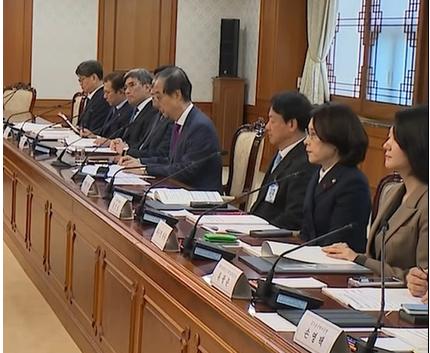South Korea's Government Commits to Boosting Advanced Industries
In a significant move to enhance its global competitiveness, the South Korean government has announced plans to expand policy finance for four major advanced industries—semiconductors, displays, secondary batteries, and bio—to a total of 25.5 trillion won in 2025.
This decision was made during the 7th National Advanced Strategic Industry Committee meeting held at the Government Complex Seoul on December 20, presided over by Acting President and Prime Minister Han Duck-soo.

The "Support Plan for Advanced Strategic Technologies" includes a substantial increase in policy finance by 7.1 trillion won, marking a 39% rise compared to this year. In the semiconductor sector alone, 20.2 trillion won has been supplied by last month, surpassing the initial plan by 18.4 trillion won.
Acting President Han emphasized the importance of this initiative, stating, "It is a critical time to make thorough preparations to seize external uncertainties as opportunities, along with efforts to improve the constitution of domestic industries to secure global competitiveness."
The government has also designated humanoid robots and advanced aviation engines as new national advanced strategic technologies. The focus in robotics will be on designing, manufacturing, and processing humanoid robot actuators and frames capable of moving at speeds over 3.3m/s and carrying weights over 20kg. In the defense sector, the core material and component technology for advanced aviation engines with an output of over 15,000 lbf for manned and unmanned aerial vehicles has been designated.
These newly designated technologies are expected to be officially announced in January next year after administrative notice procedures. The government also plans to accelerate the creation of advanced industrial specialized complexes, including semiconductor specialized complexes in Yongin and Pyeongtaek.
Han highlighted the government's comprehensive approach, stating, "We will create a robust industrial ecosystem through the designation of specialized complexes, establishment of specialized universities and graduate schools, and support for research and development (R&D) in newly designated fields such as robotics and defense."









Comments